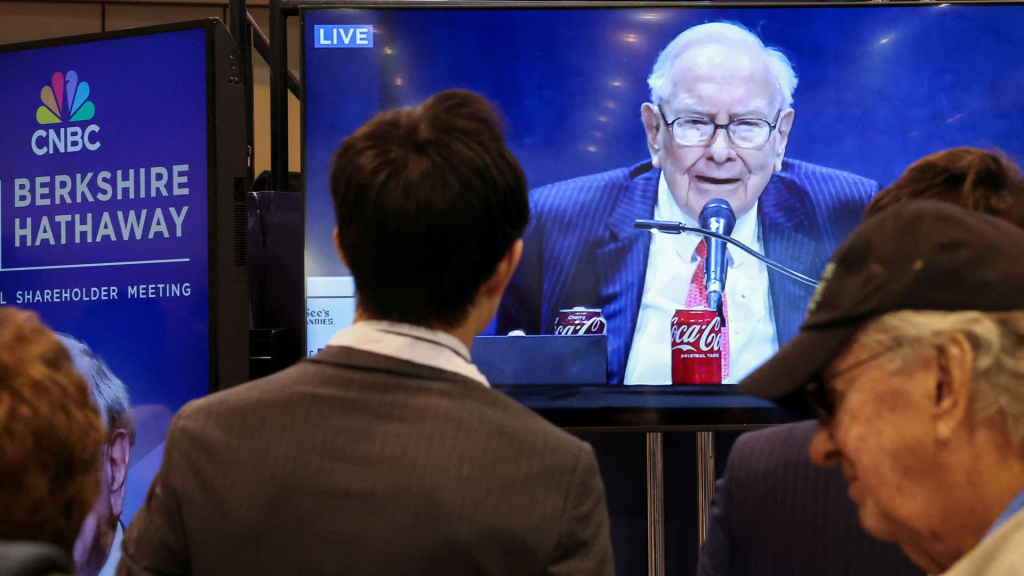Shares of Berkshire Hathaway faced selling pressure on Monday following the unexpected announcement from Warren Buffett regarding his retirement, prompting investors to consider the future direction of the conglomerate after his remarkable 60-year tenure.
In a significant moment during Berkshire’s annual meeting in Omaha, Nebraska, Buffett, 94, informed shareholders that Greg Abel, the vice chairman overseeing non-insurance operations, will succeed him as CEO. The board unanimously approved Abel’s promotion to president and CEO, effective January 1, 2026, while Buffett will maintain his role as chairman.
Following the announcement, Class A shares experienced a decline of 6.2%, trading at approximately $760,000, down from a record high of $809,350. Similarly, Class B shares fell by 6.2% to $506.12, retreating from Friday’s all-time peak of $539.80. Class B shares were originally issued in 1996 at a valuation one-thirtieth of a Class A share, with a notable 50-for-1 split taking place in 2010.
“Shareholders should be optimistic about this clear transition, but also reassured that Warren will remain actively involved,” remarked Macrae Sykes, a portfolio manager at Gabelli Funds and a Berkshire investor. “By retaining the chairman position, he can continue to provide mentorship to Greg and other leaders within Berkshire, ensuring a reservoir of intellectual input during forthcoming capital allocation decisions.”
This marked a significant turning point for Berkshire, which, six decades ago, was struggling as a textile mill until Buffett seized control through an investment partnership. Since then, the company has evolved into a colossal enterprise with a market valuation nearing $1.2 trillion, covering a diverse array of sectors including insurance, railroads, retail, manufacturing, and energy. Buffett’s handover comes as shares hit a new high just days prior.
“Buffett leaves behind a company that is less dependent on his specific investment skills, boasting a variety of successful businesses generating strong cash flows,” noted Brian Meredith, a UBS analyst following Berkshire. “We anticipate minimal operational change at Berkshire, and expect the culture and strategy to remain consistent under Abel’s leadership.”
The reaction in the stock market may also be linked to Berkshire’s first-quarter earnings report, which unveiled a 14% drop in operating profits, a result of a staggering 48.6% fall in insurance-underwriting income. The company cited significant losses from natural disasters, including a $1.1 billion impact due to wildfires in Southern California.
Despite the recent challenges, Berkshire shares have notably outperformed the S&P 500, climbing nearly 19% so far this year. Investors are drawn to Berkshire as a relatively secure investment option, largely due to the firm’s extensive insurance operations and its robust financial standing.


























